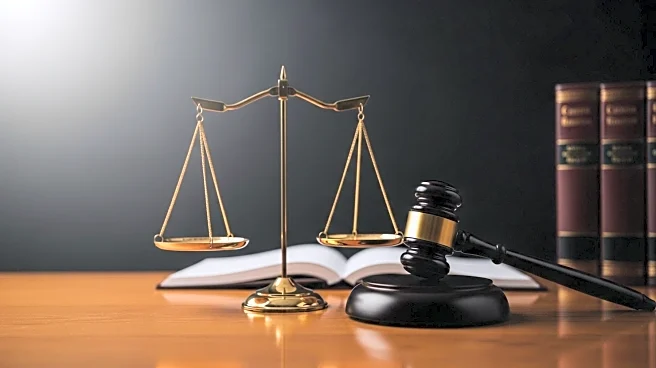What's Happening?
Following the death of Charlie Kirk, a campaign led by conservative activists and politicians targeted individuals who posted negative comments about Kirk on social media, resulting in numerous firings. Public employees across several states, including Indiana, Iowa, Kansas, South Carolina, and South Dakota, have filed lawsuits challenging their dismissals as violations of free speech rights. A federal judge has already ruled in favor of reinstating a tenured professor at the University of South Dakota who was fired over Facebook comments. Legal organizations like the Foundation for Individual Rights and Expression (FIRE) and the ACLU are providing support and representation to those affected, arguing that the firings constitute blatant First Amendment violations.
Why It's Important?
The legal challenges highlight the tension between free speech rights and employment consequences in the wake of politically charged events. The lawsuits underscore the protection afforded to public employees under the First Amendment, which prevents government retaliation for private speech. The outcome of these cases could set important precedents for free speech rights, particularly for public sector employees. The involvement of major civil rights organizations indicates the significance of these cases in defending constitutional rights and ensuring that political speech is not unduly suppressed. The broader implications for free speech and employment law could influence how similar situations are handled in the future.
What's Next?
As lawsuits progress, courts will determine whether the firings were justified or if they violated free speech protections. The legal proceedings may lead to reinstatements, monetary damages, or policy changes within affected institutions. The cases could prompt a reevaluation of how public and private sector employers handle employee speech, particularly in politically sensitive contexts. The outcome may also influence public discourse on the balance between free speech and professional conduct, potentially leading to legislative or policy reforms.
Beyond the Headlines
The cultural and ethical dimensions of these cases are significant, as they reflect broader societal debates about free speech, political polarization, and the role of social media in shaping public opinion. The targeting of individuals for their political views raises concerns about the chilling effect on free expression and the potential for self-censorship. The involvement of high-profile conservative figures and organizations in the campaign against dissenting voices highlights the intersection of politics and personal freedoms. The long-term impact on public discourse and the protection of civil liberties remains a critical area of concern.









